June 13: Enjoying a hike and the gulets.
Ah, this is the life. A day of hiking, swimming, snorkeling, and sailing on the Aegean seacoast. Ruins of buildings built thousands of years ago along the hiking path, ruins along the seashore and underwater. Turquoise water, warm and welcoming. Kayaks. Great food. Good conversation. This was a gem of a day.
We begin our hike in the cove of Aga Limani, across the bay from Gocek. The hike is part of the Lycian Way, a long-distance footpath in Turkey along the coast of ancient Lycia. We hike past Greco-Roman ruins, Lydian ruins, and end at the Lycian era Sunken Baths of Cleopatra. The hike took about 3 hours and was steep and rocky at times. We stop a lot to learn about the different trees and flowers and local history.
(Historical timeline: Kingdom of Lydia from 12-6th century BC, encompassing most of western Turkey; Lycia, around 1-2 BC, along the western coast of modern-day Turkey.)
Each gulet has a small motorboat to transport passengers from the gulet to the shore:
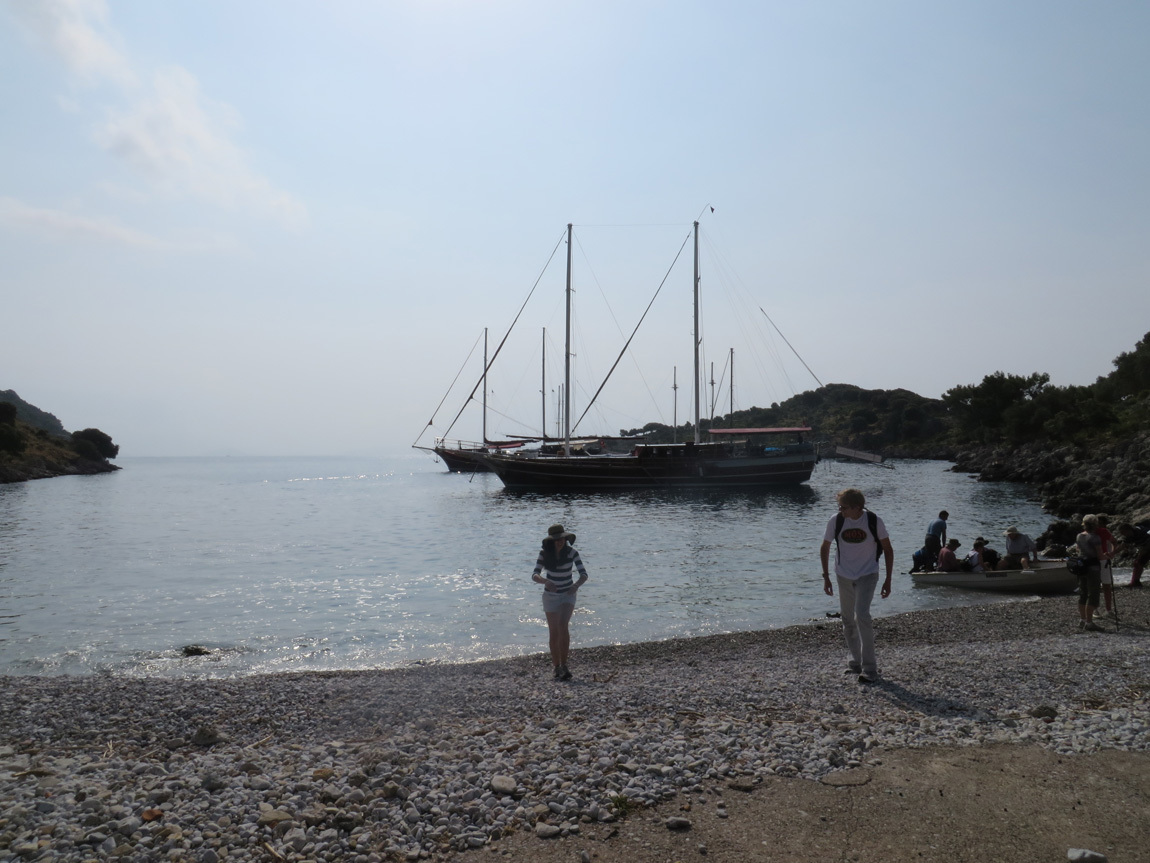
The trails rises quickly and we see our gulets starting off. They will motor along the shore and pick us up at another spot at the end of our hike.
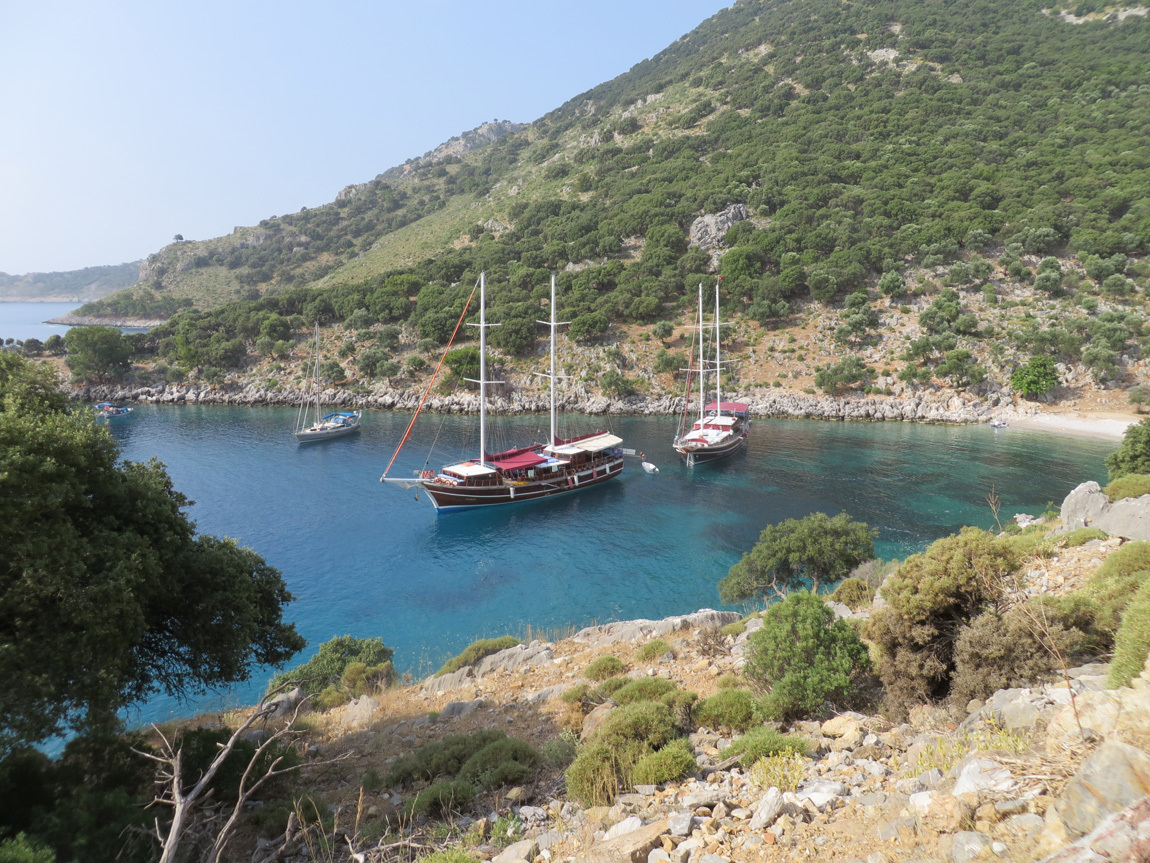
Ruins of a house:
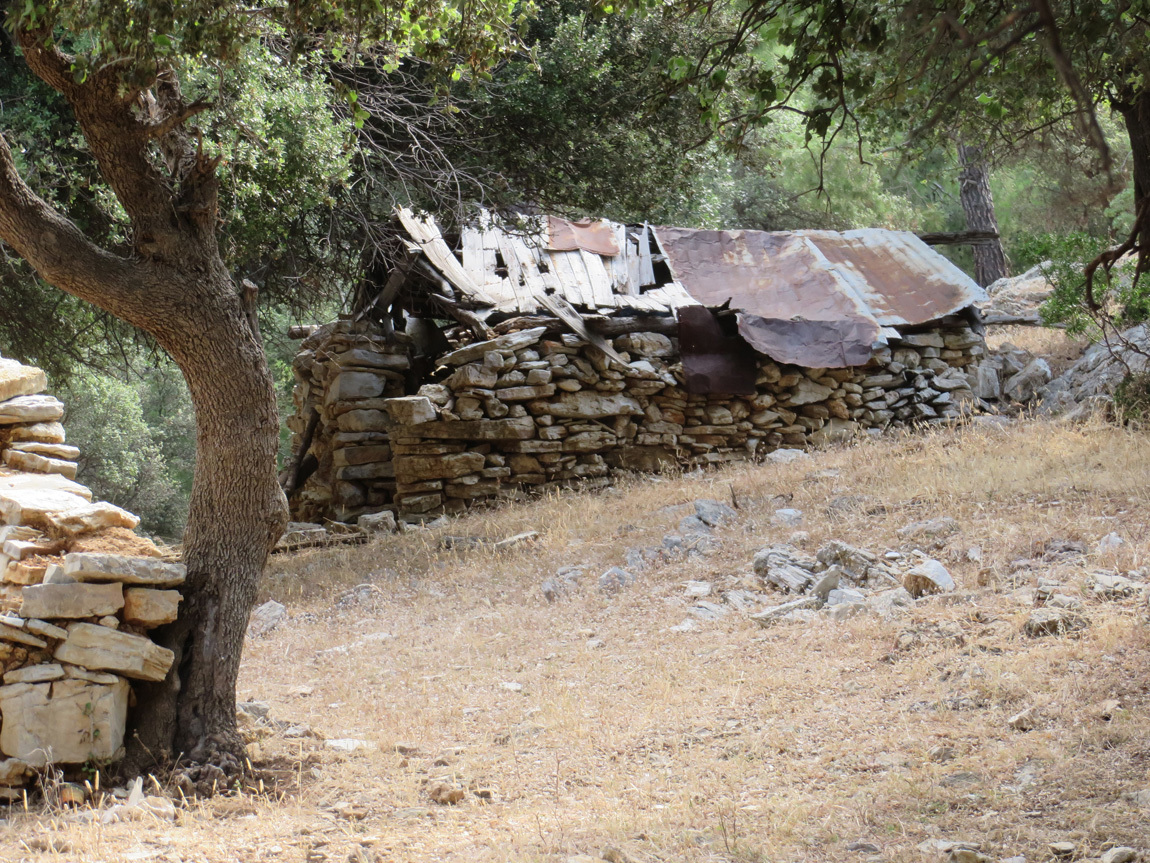
This trail was once paved with large stones.
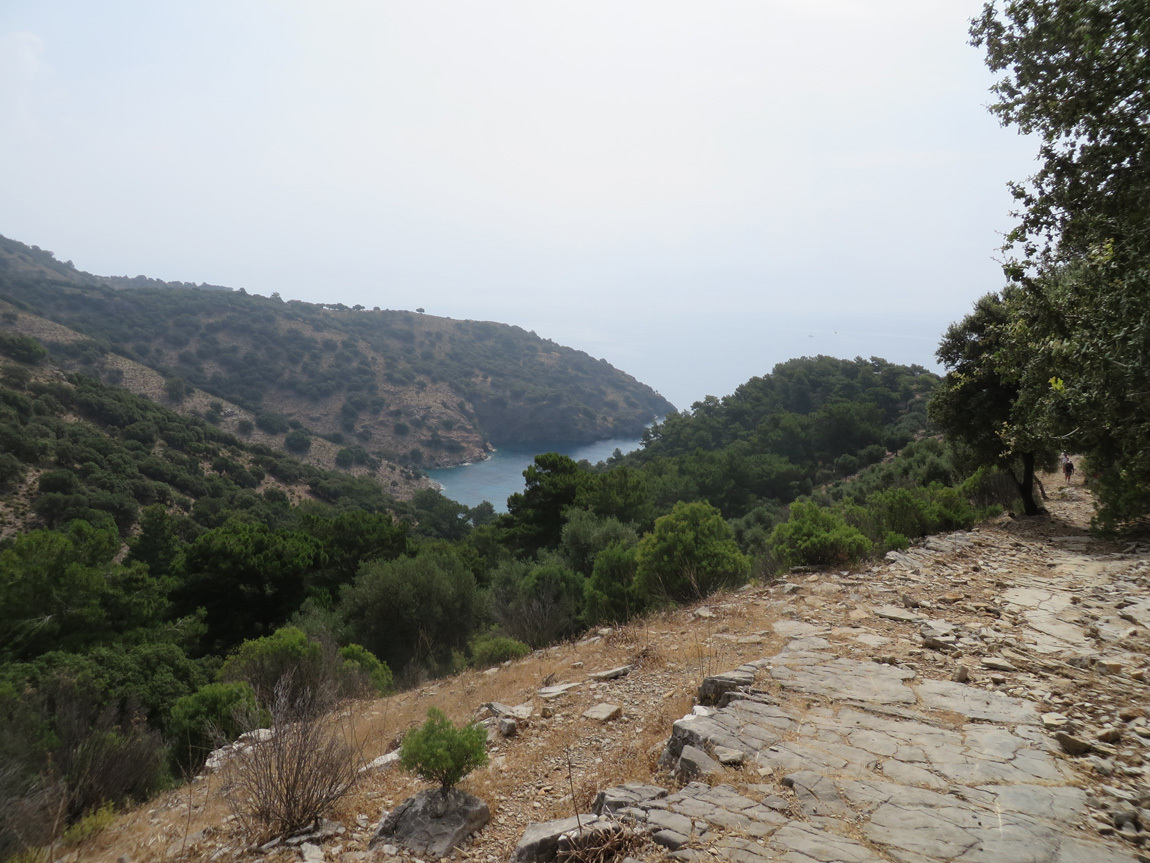
Different types of trees and plants line the trail. Ali points out pomegranite trees, bay leaf trees, and herbs such as oregano and sage.
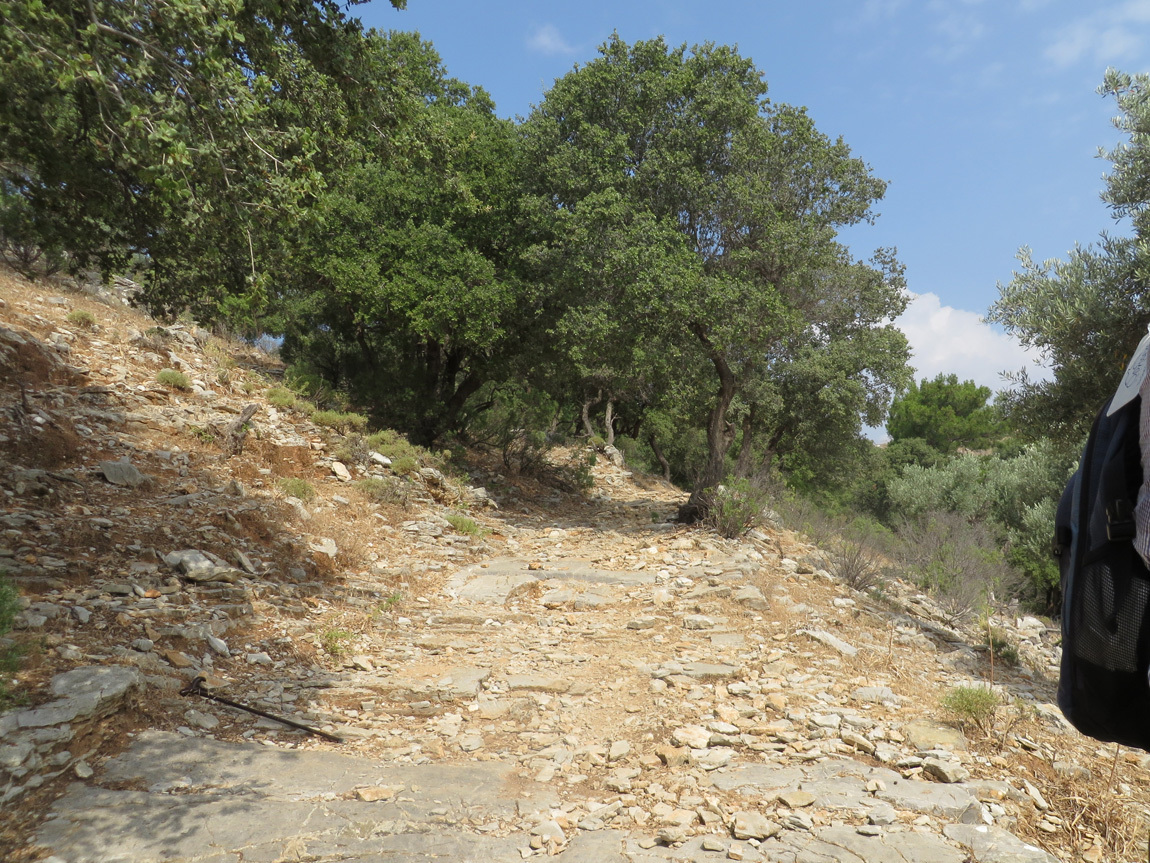
This was once a church.
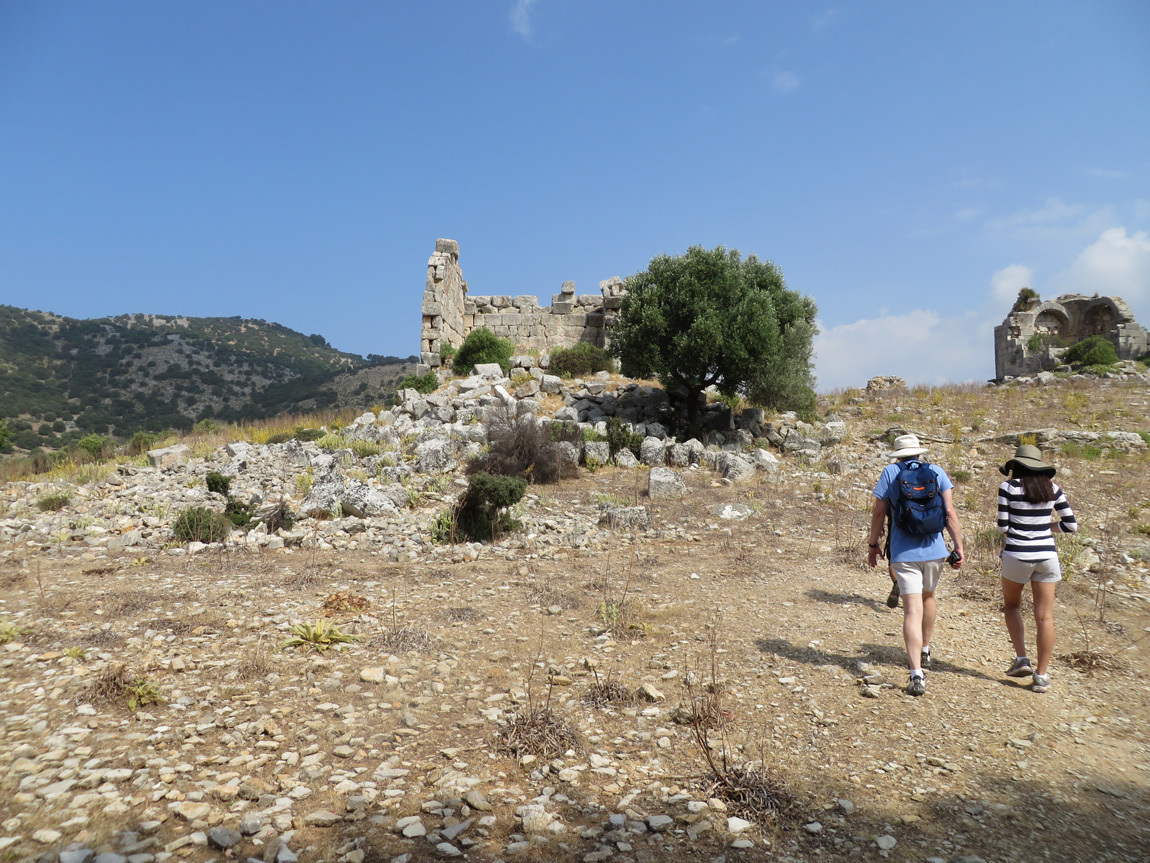
See the tree growing out of the old structure:
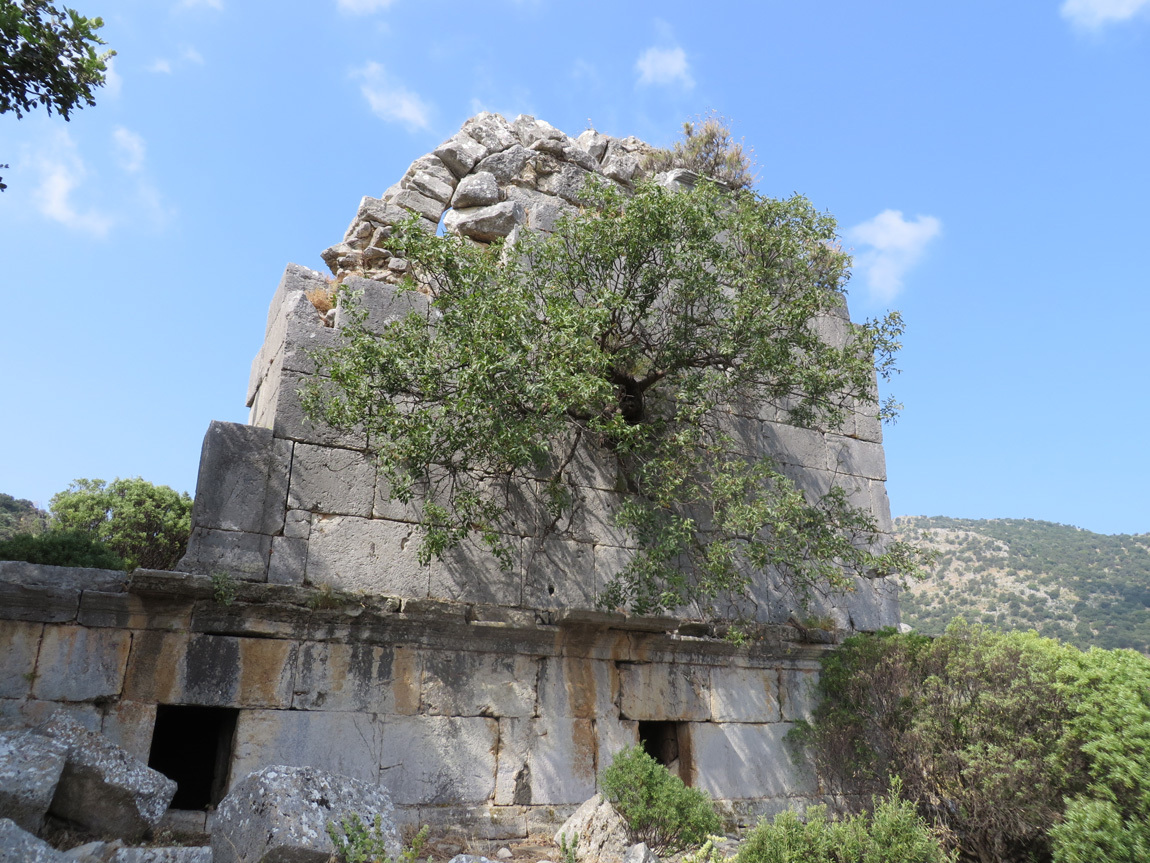
Andrea finds a donkey:
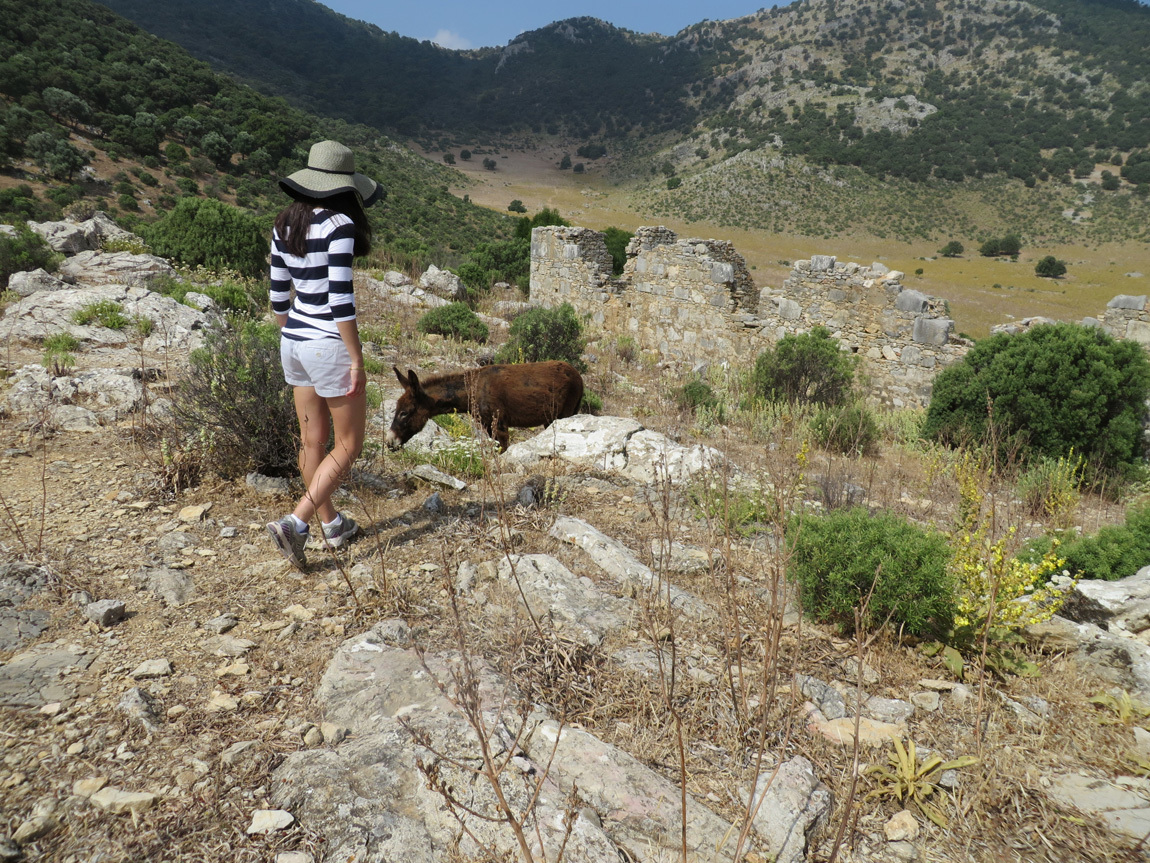
A tortoise going into a tunnel in the old church:
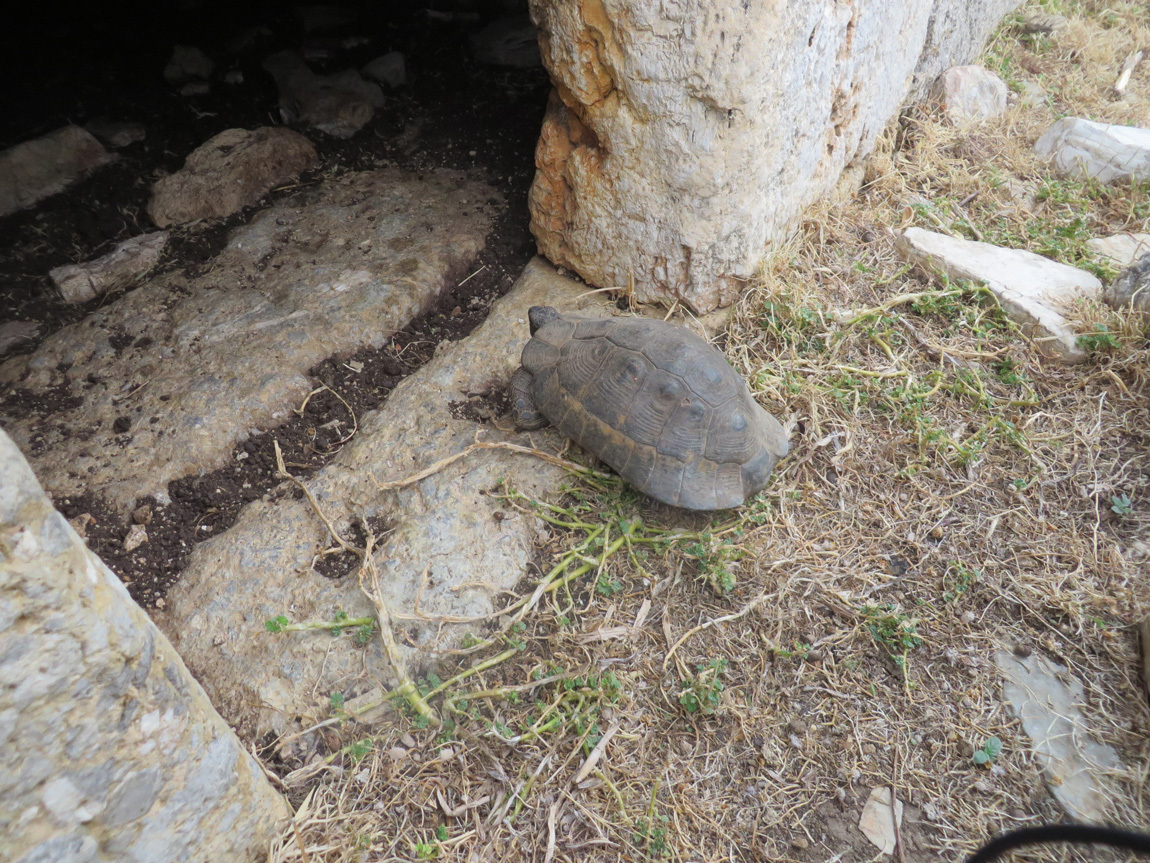
Here is where he was going:
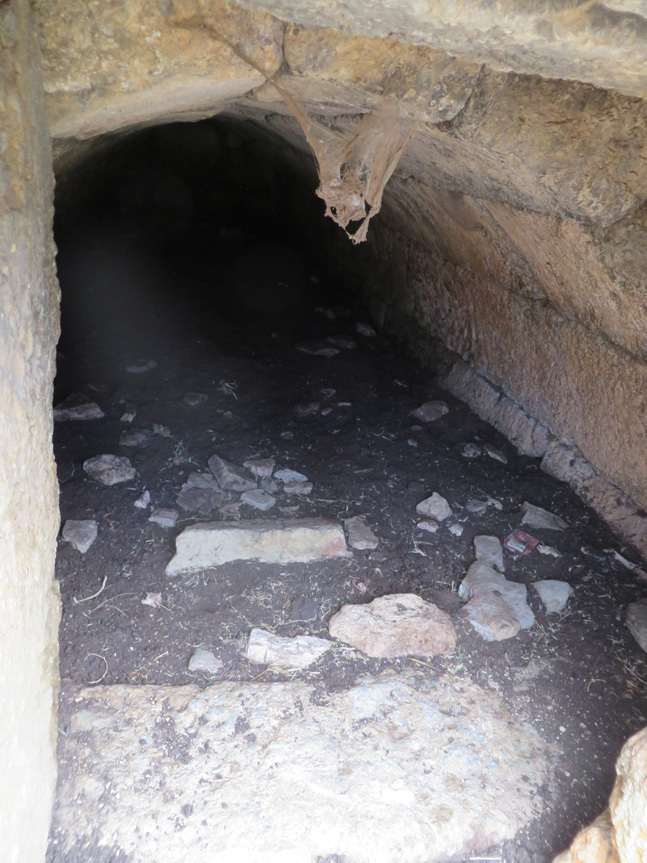
Coming up to a cistern:
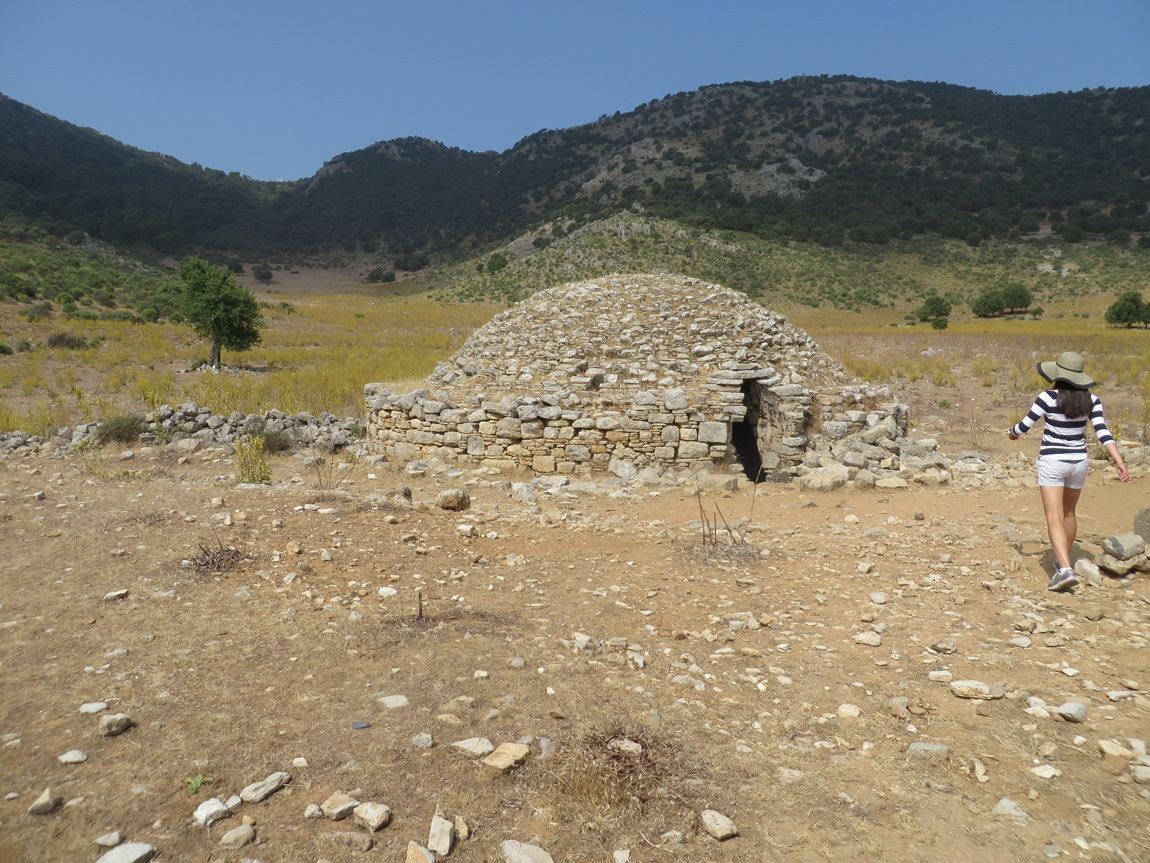
Inside the cistern:
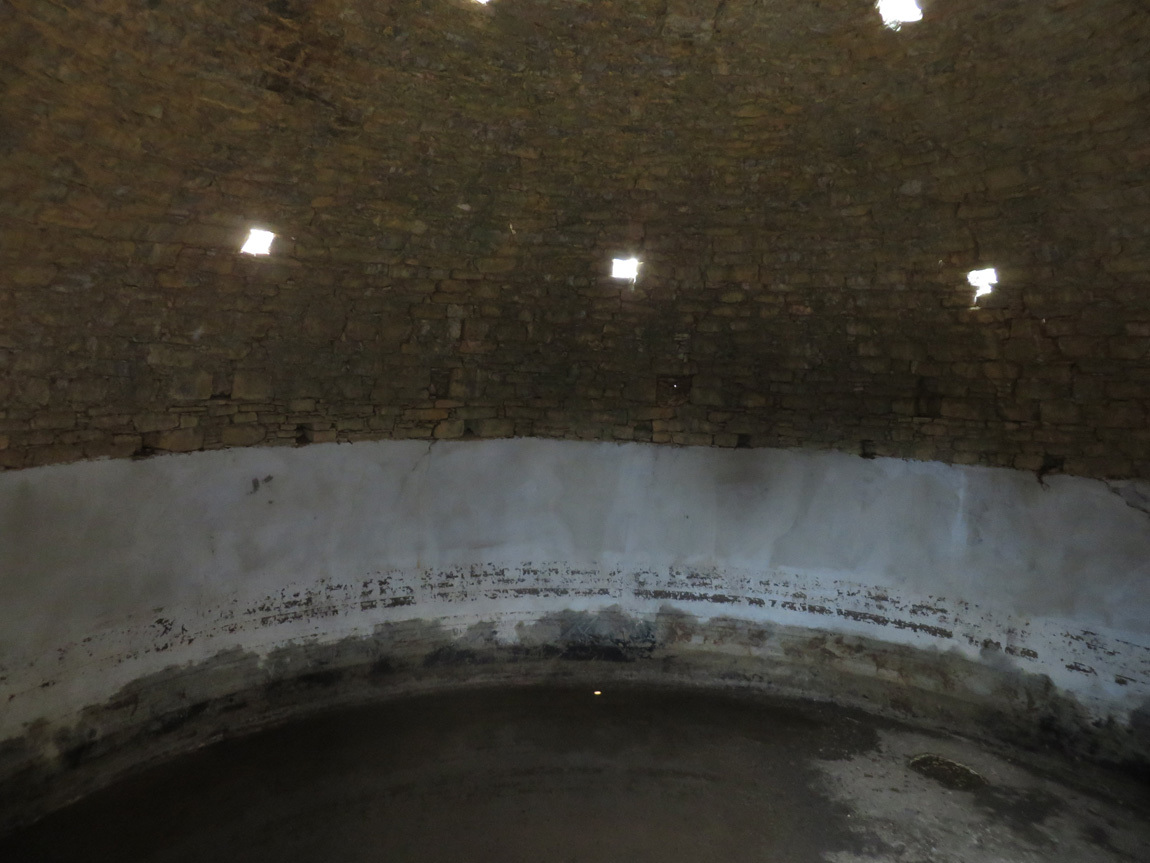
Ali has arranged for us to visit a family that lives in this rural area. They raise goats and the wife makes necklaces and goat-bells to sell to passers-by. Their daughter is home for the summer, but in the school year she lives with relatives near a city so she can attend a good school.
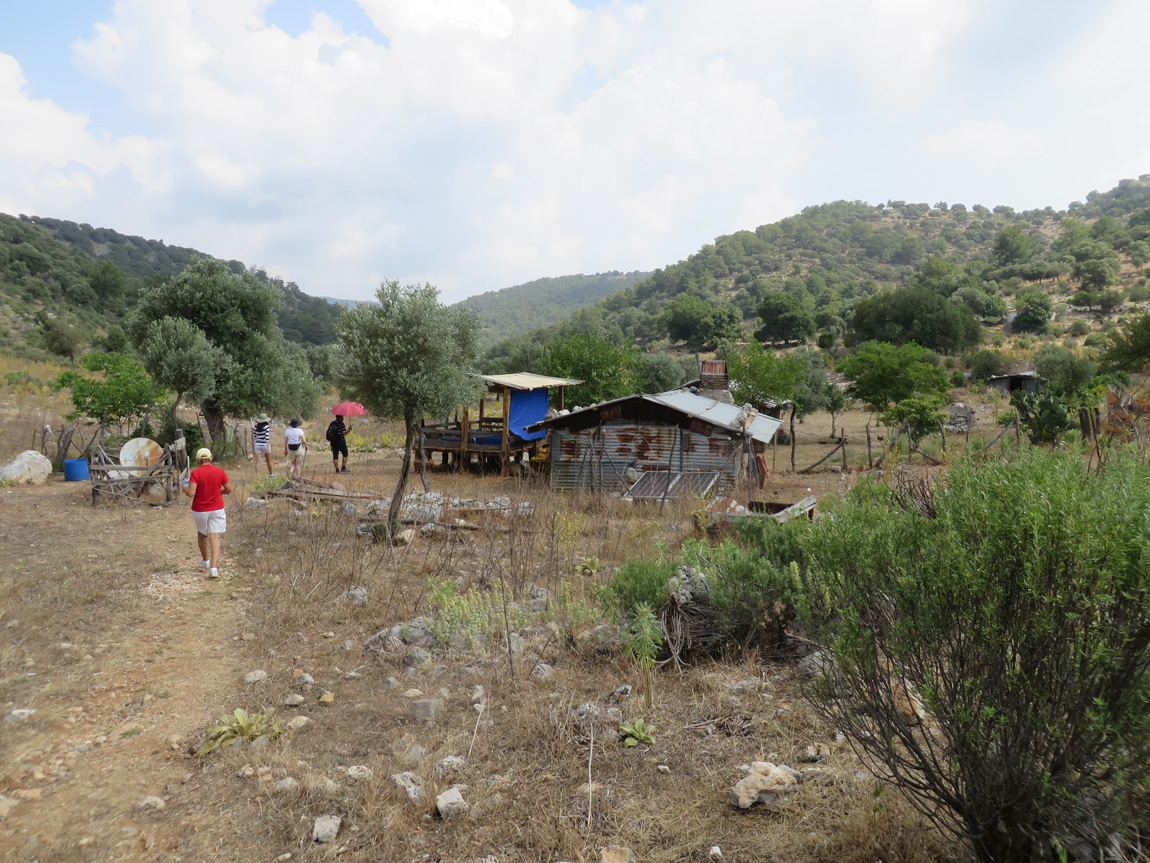
They offer us refreshments. It is good to sit down out in the shade and enjoy the sage tea.
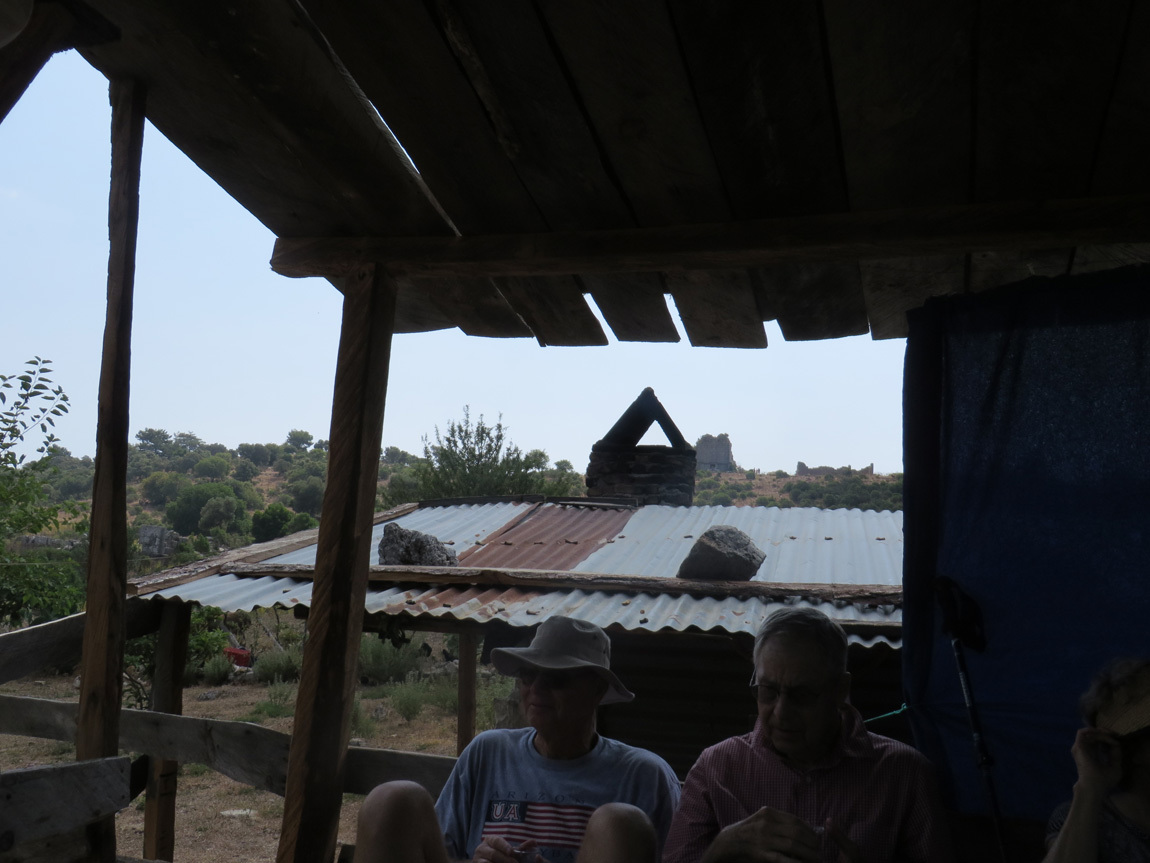
They sell their crafts under a covered area.
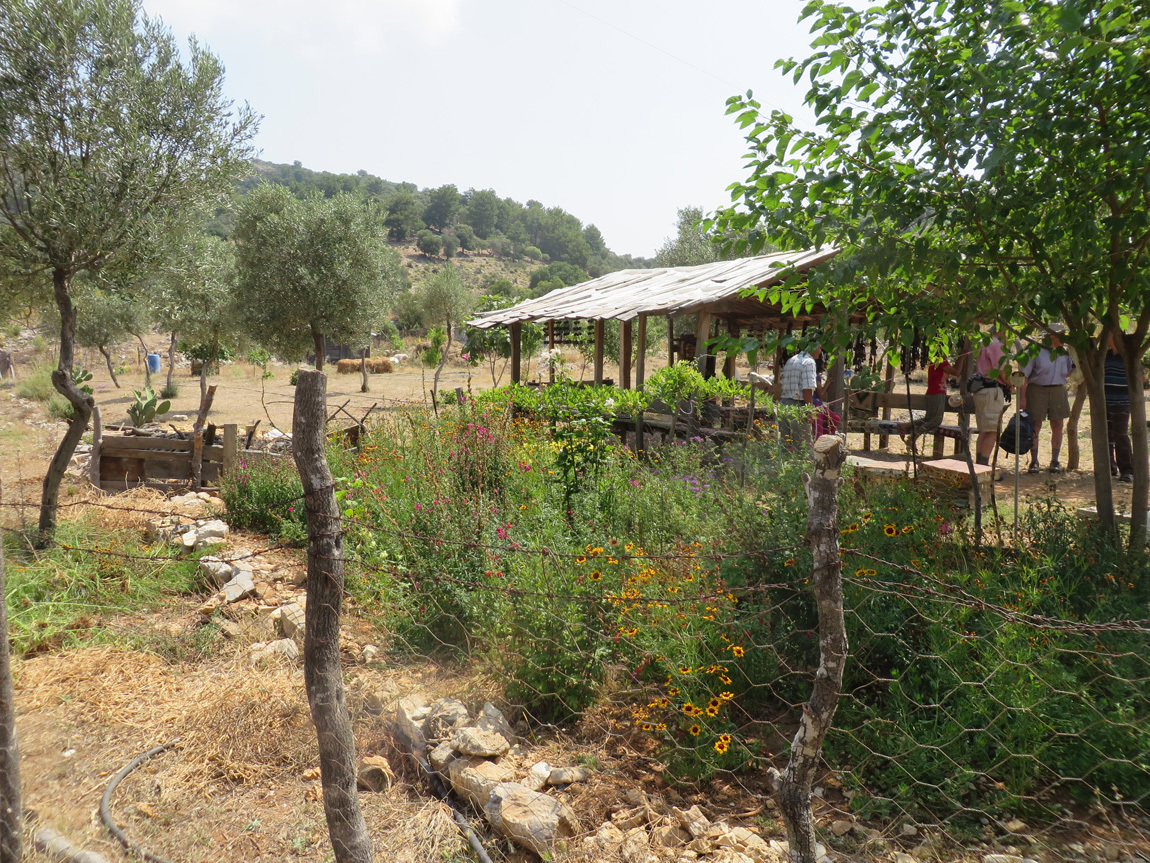
I bought a necklace:
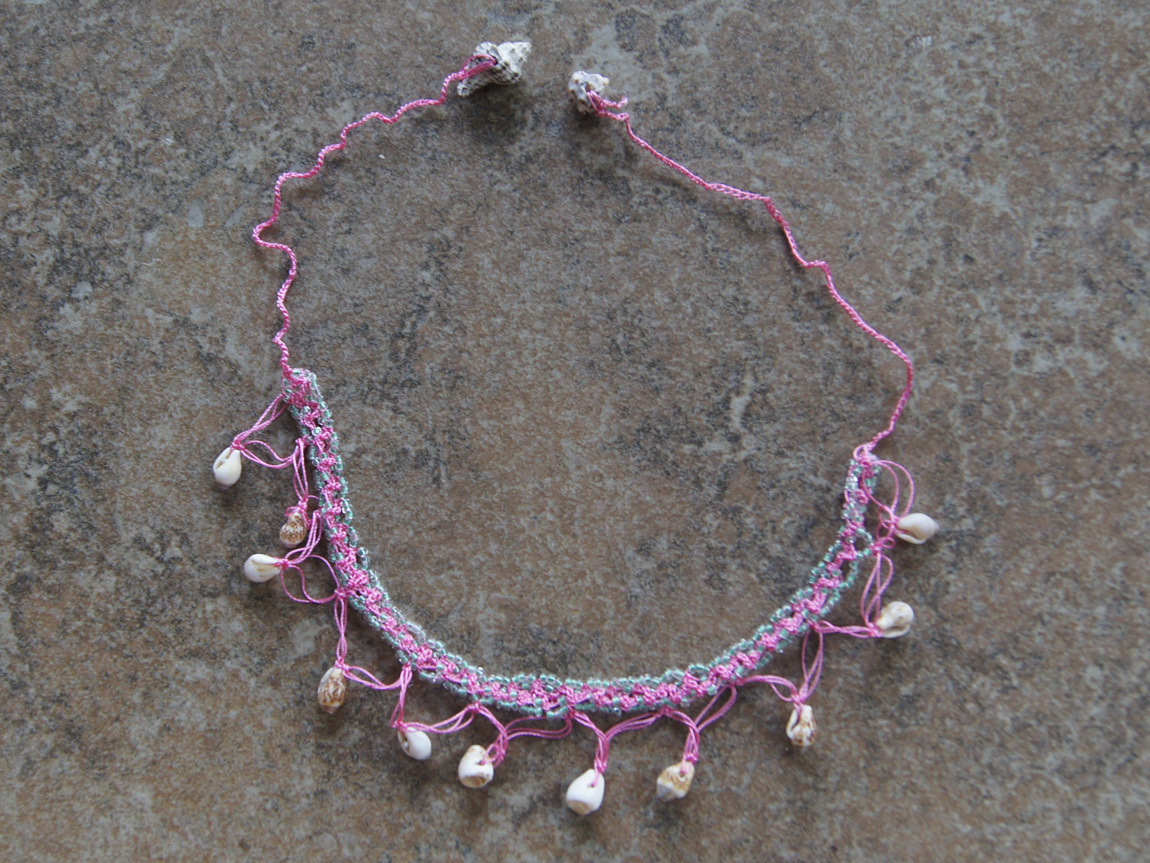
And a spoon made from olive wood:
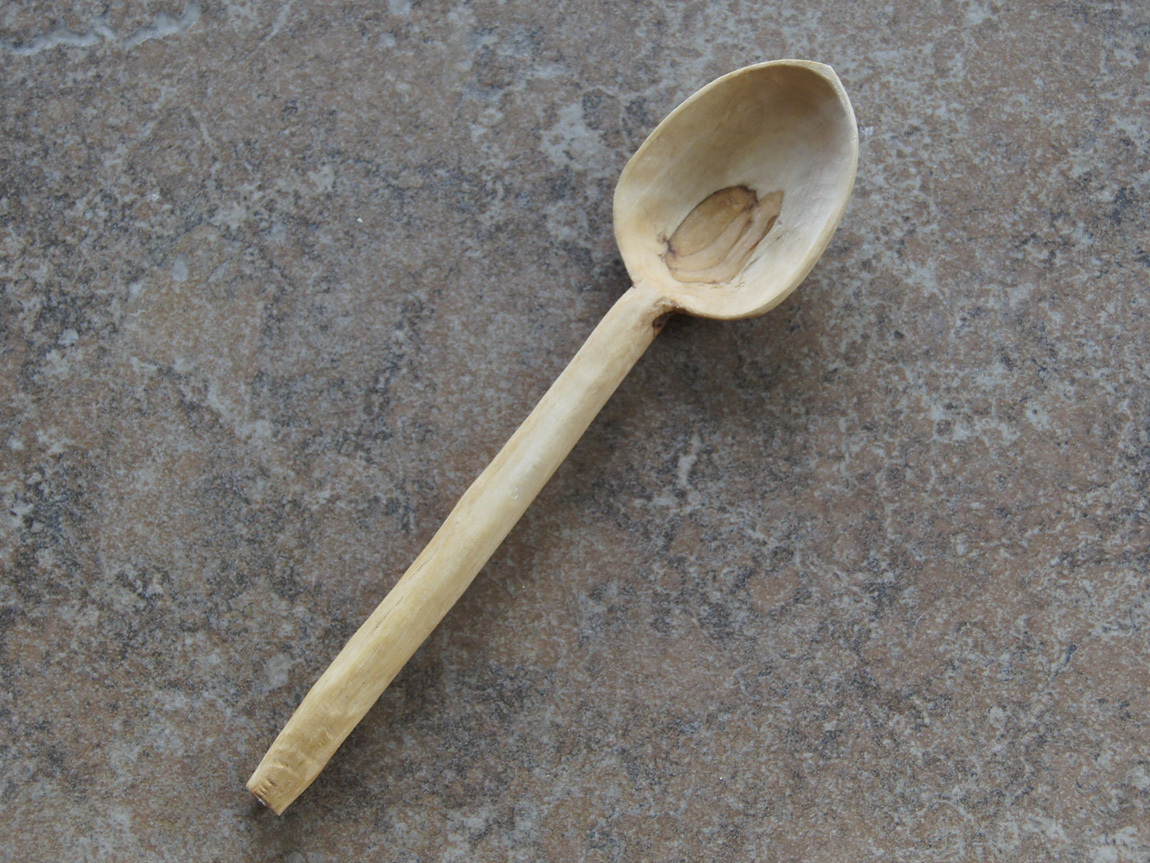
Our hike continues beneath these tall trees. They are kind of a feathery pine tree.
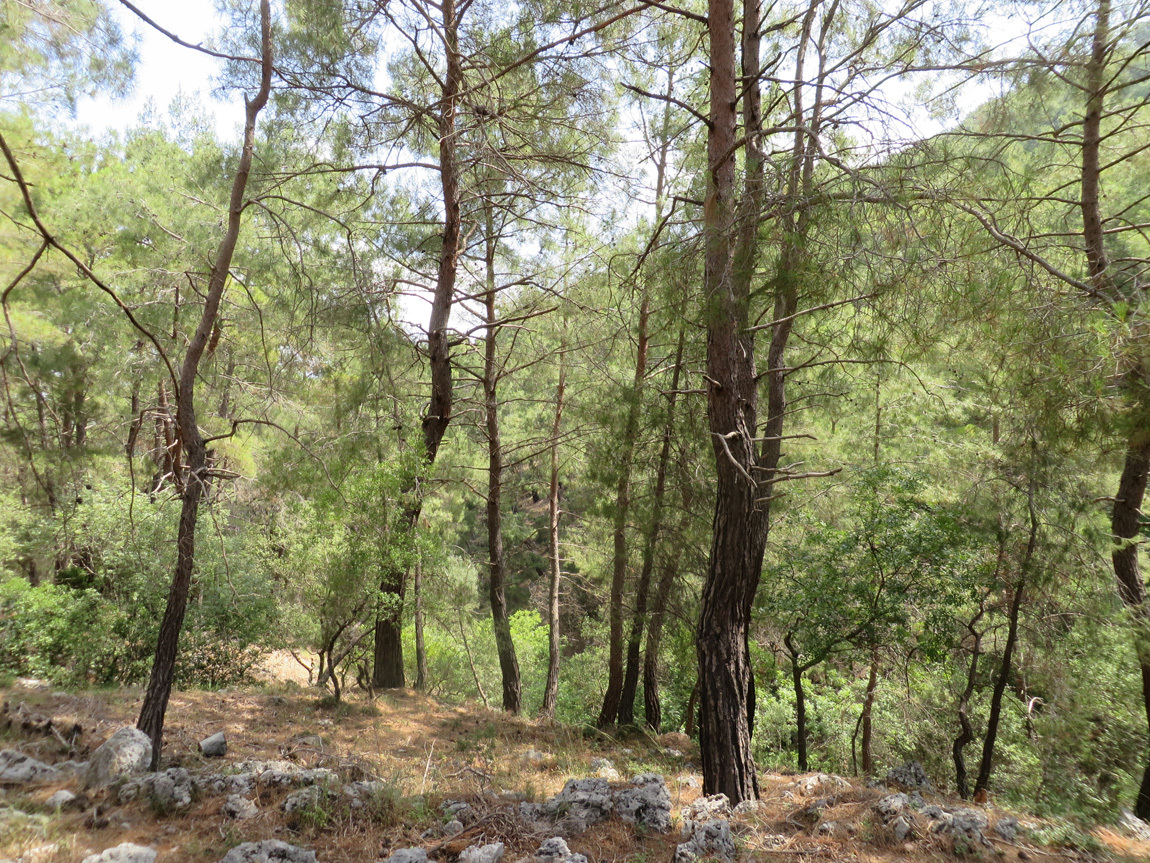
A donkey peeks out of a goatherder's shed:
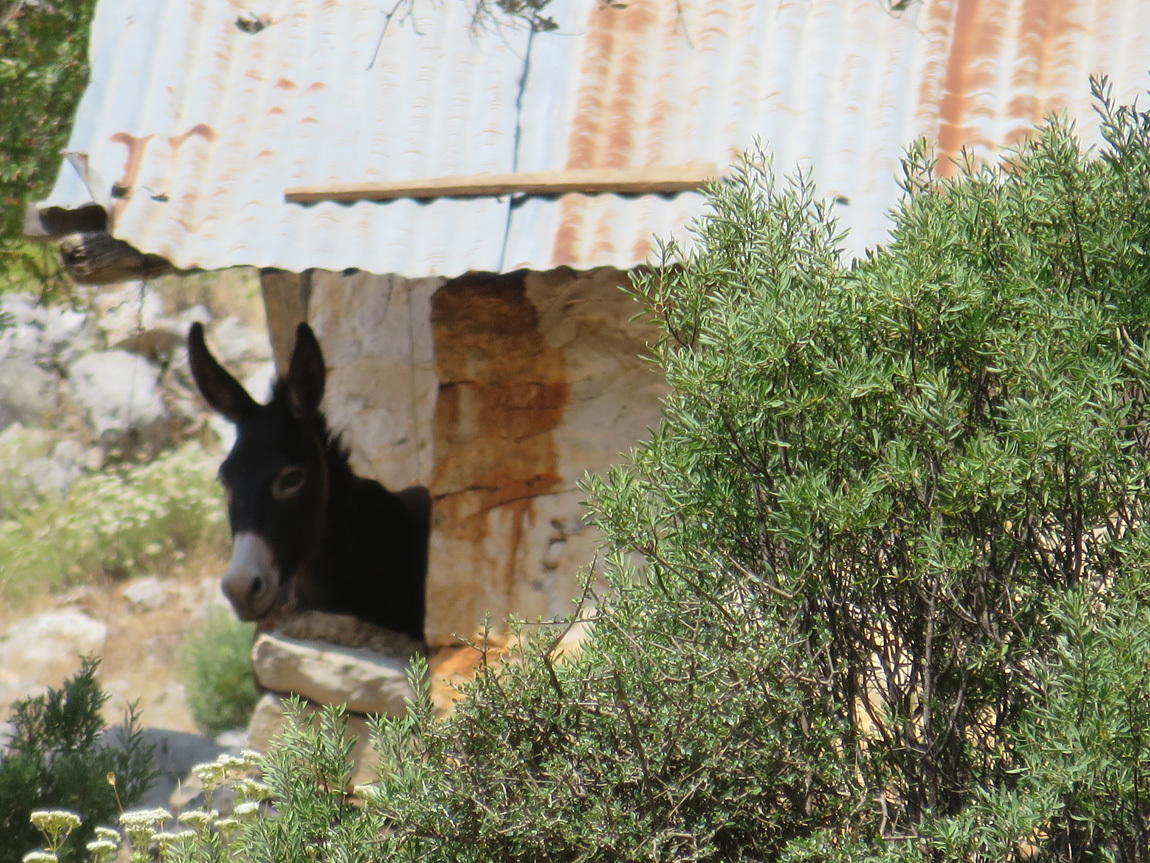
The Lycian Way is waymarked with red and yellow stripes of paint.
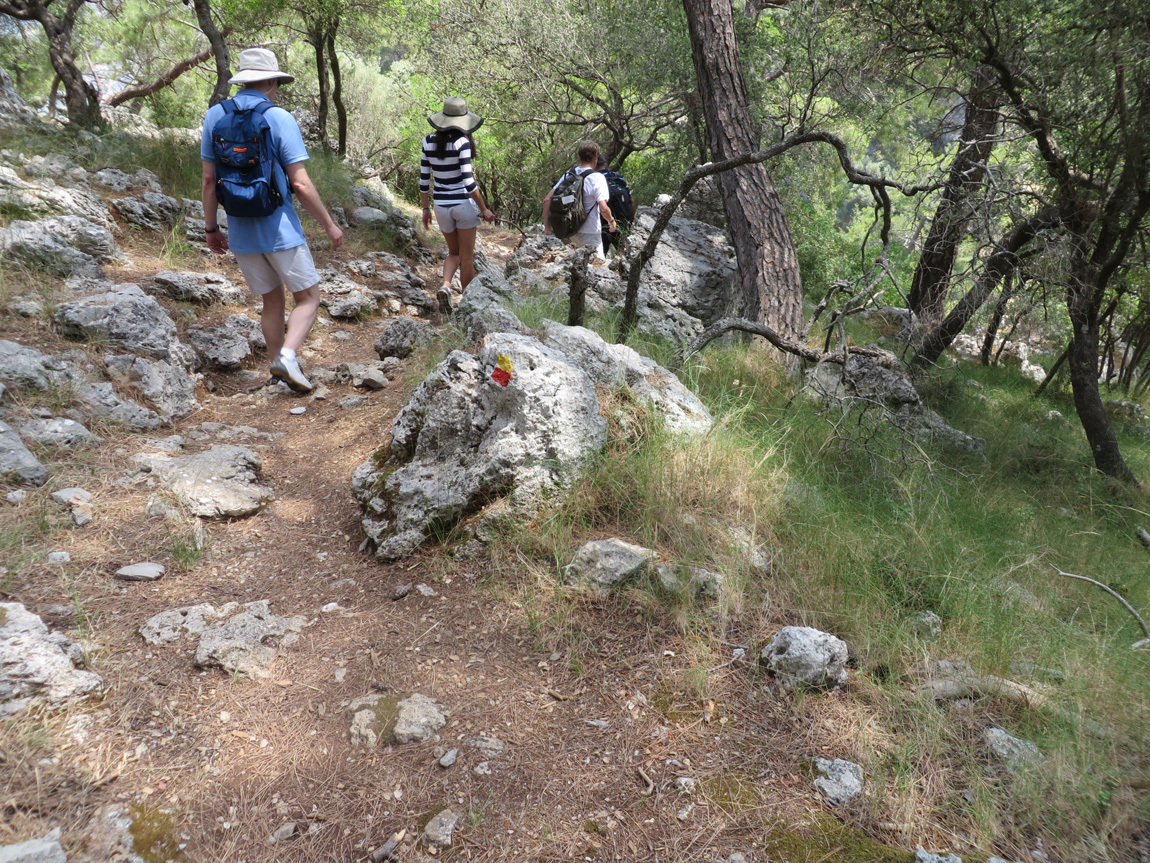
You can see the Aegean Sea in this photo. We climbed up pretty high. Ali tells us that Antony gave this part of the Lycian Way to Cleopatra as a gift, since the view is so beautiful.
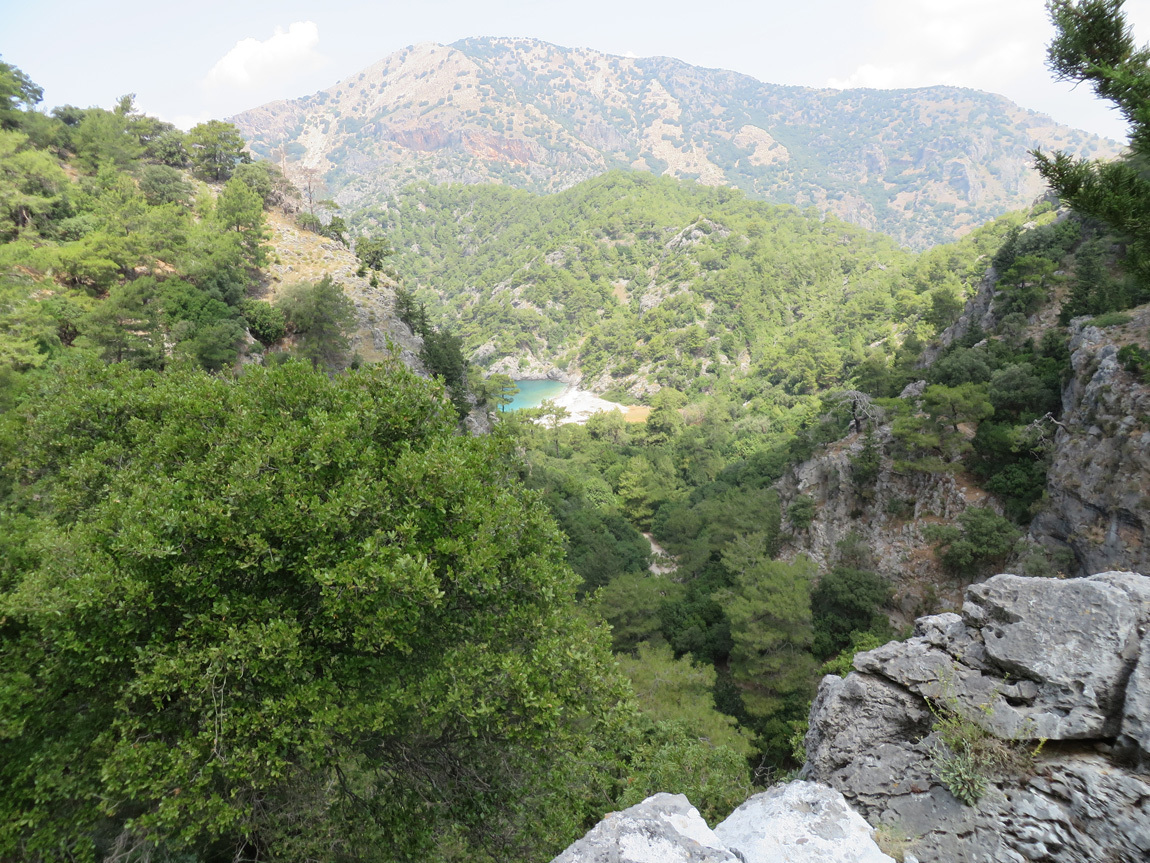
This is a strawberry tree. No, it doesn't produce strawberries, it just has bark that resembles the look of strawberries.
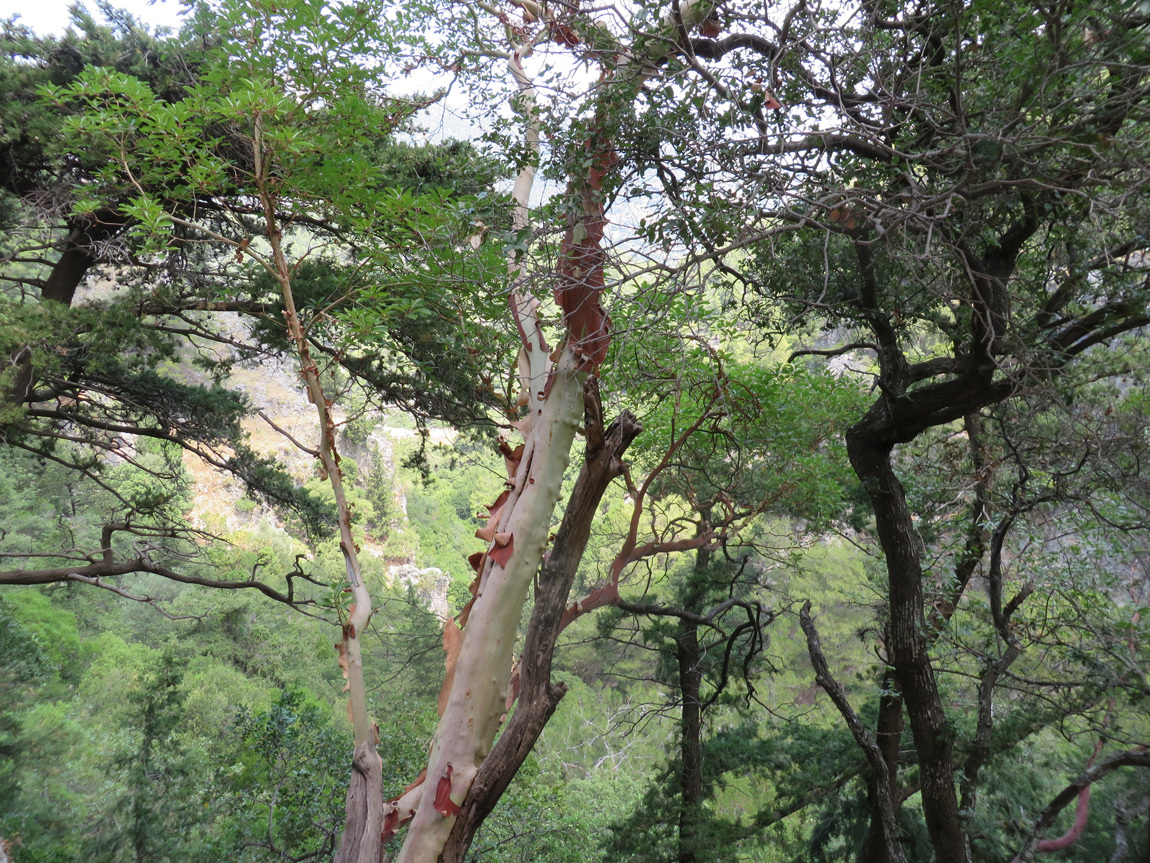
Our group along the path:
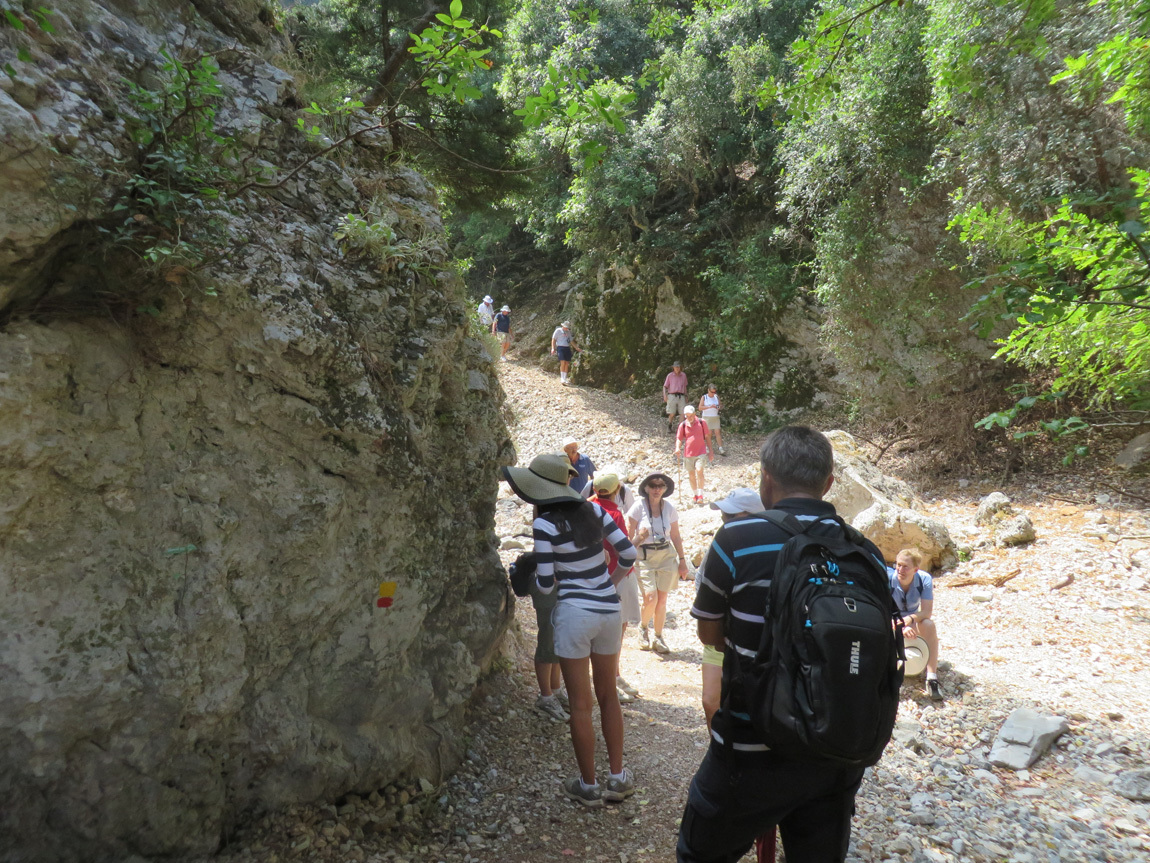
A view of the Aegean:
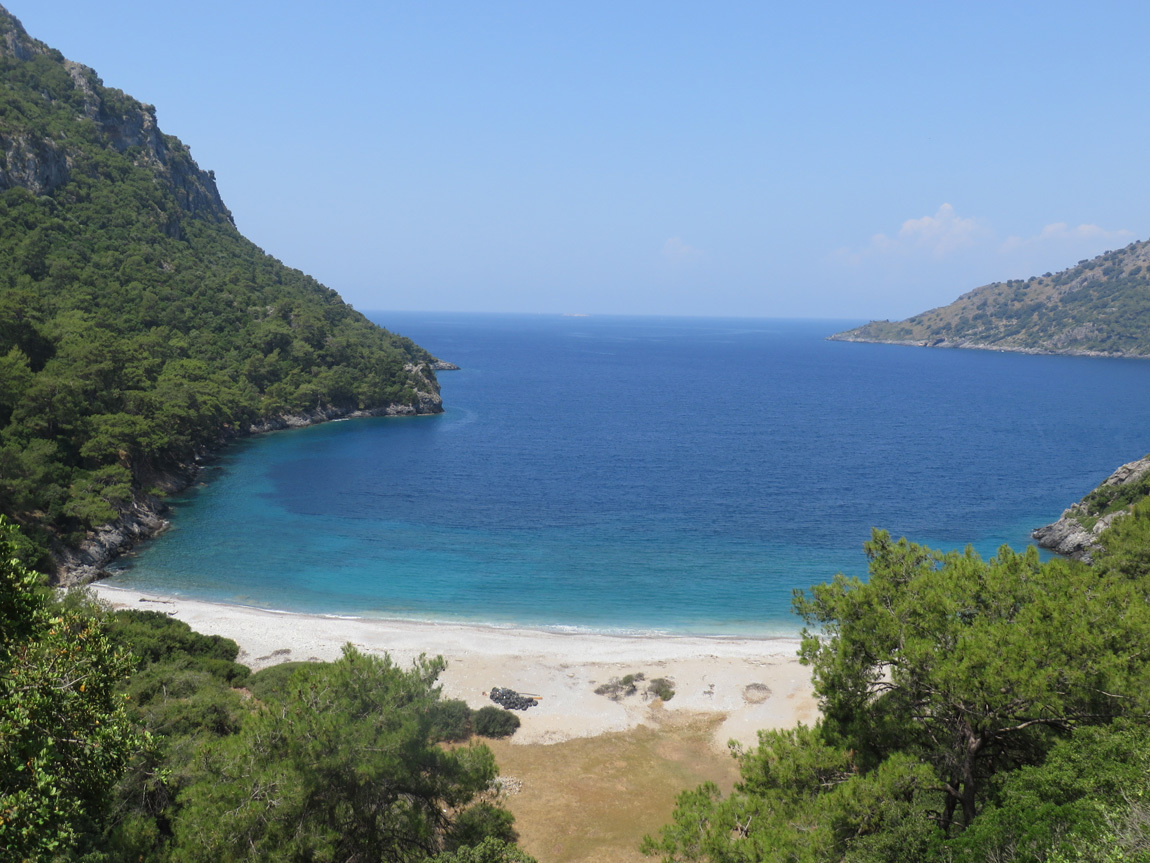
Our gulets await us in a different cove from which we disembarked this morning. The ruins are the Sunken Baths of Cleopatra. We will have lunch on the gulet and then spend the afternoon swimming and snorkeling around these ruins.
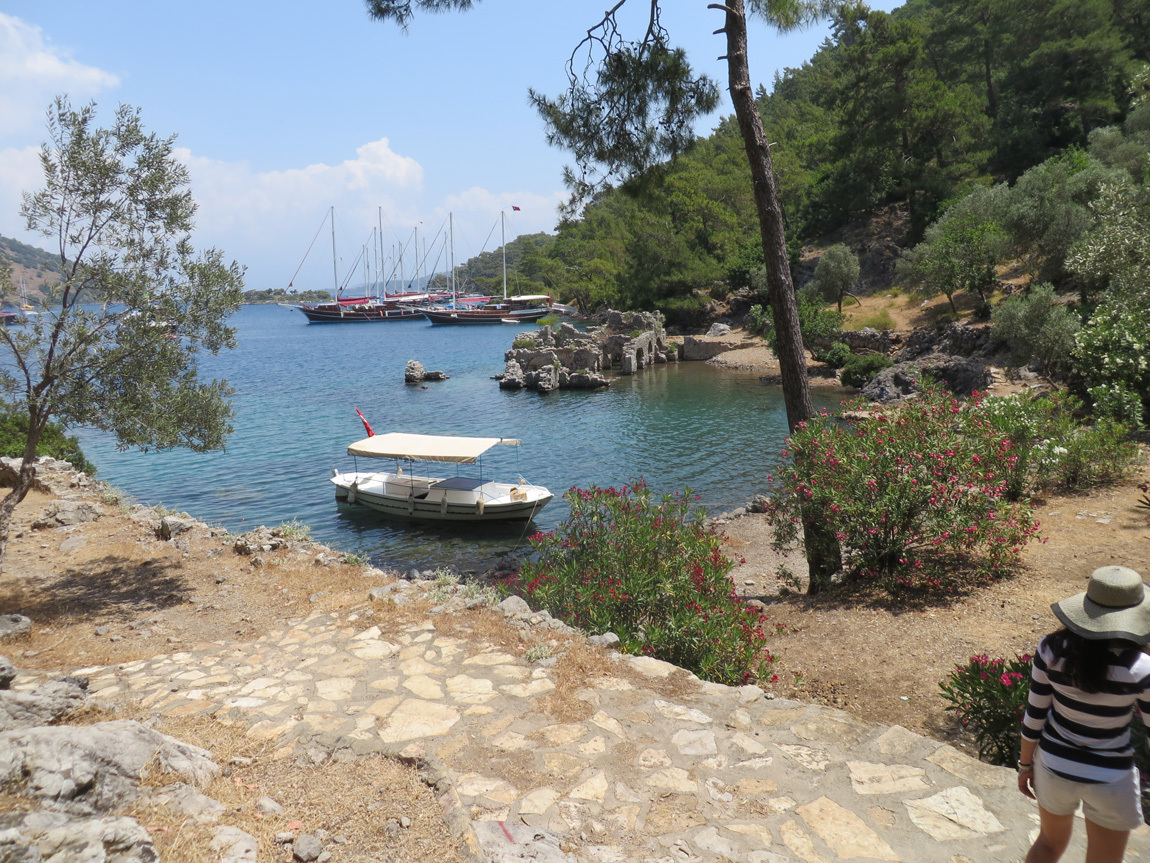
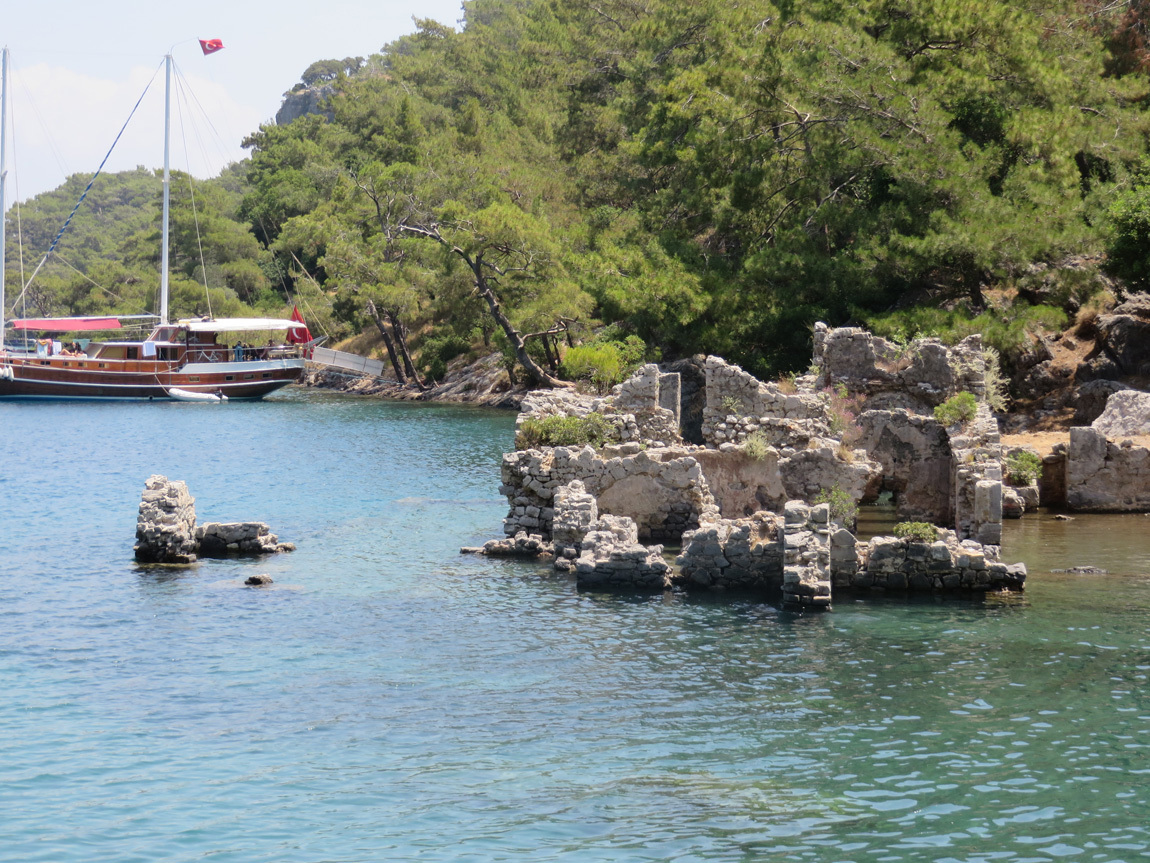
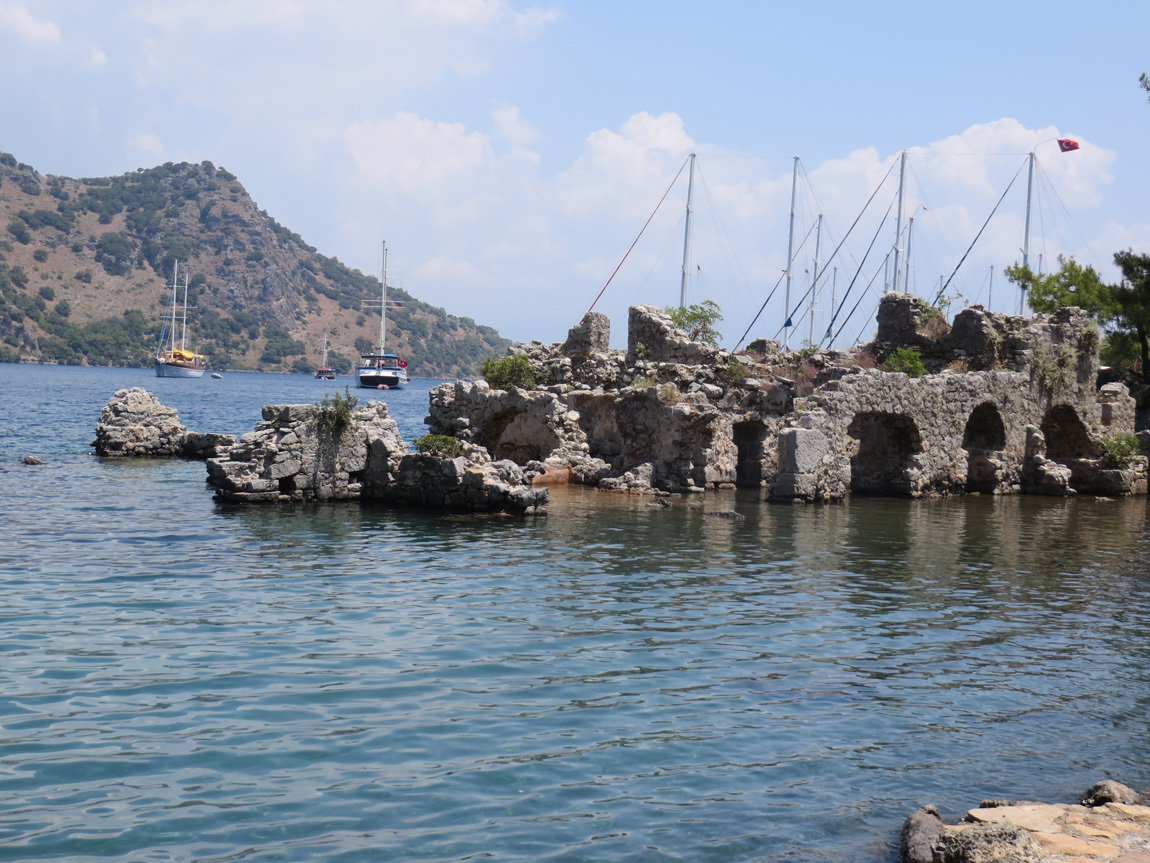
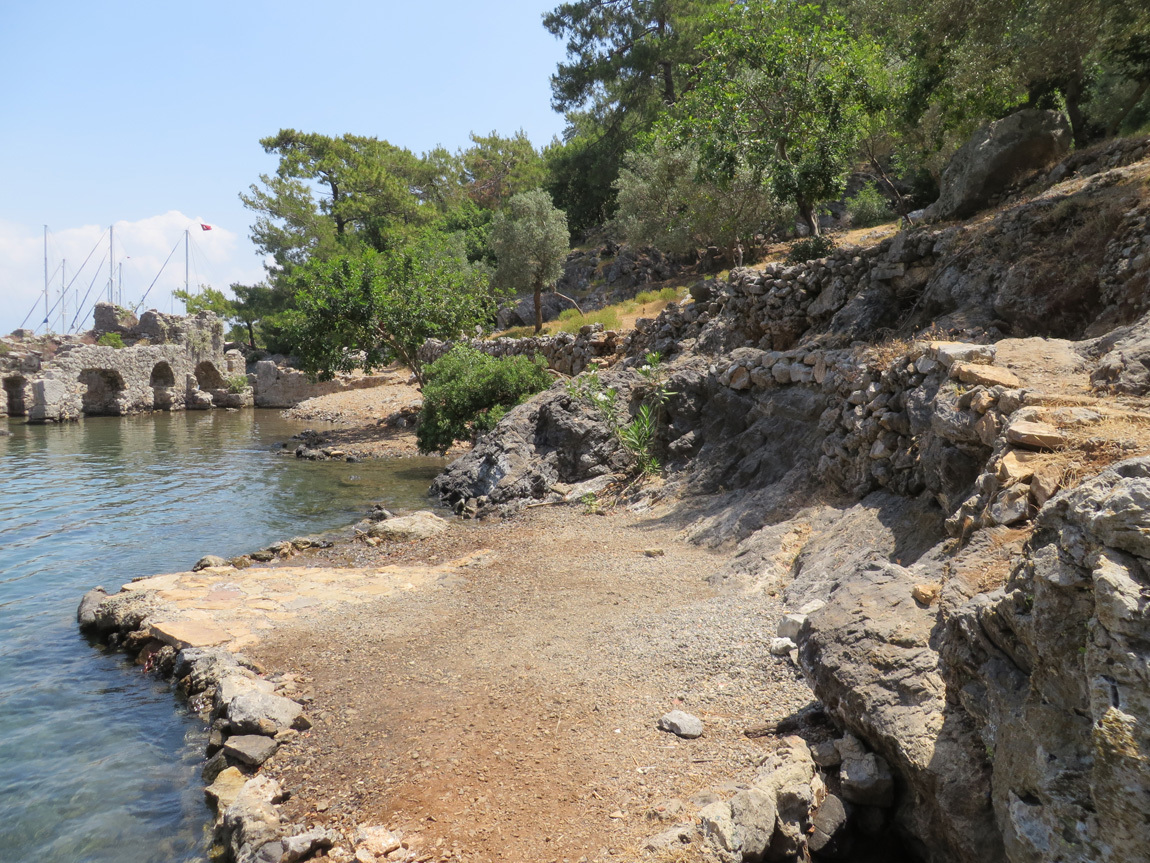
The water is crystal clear:
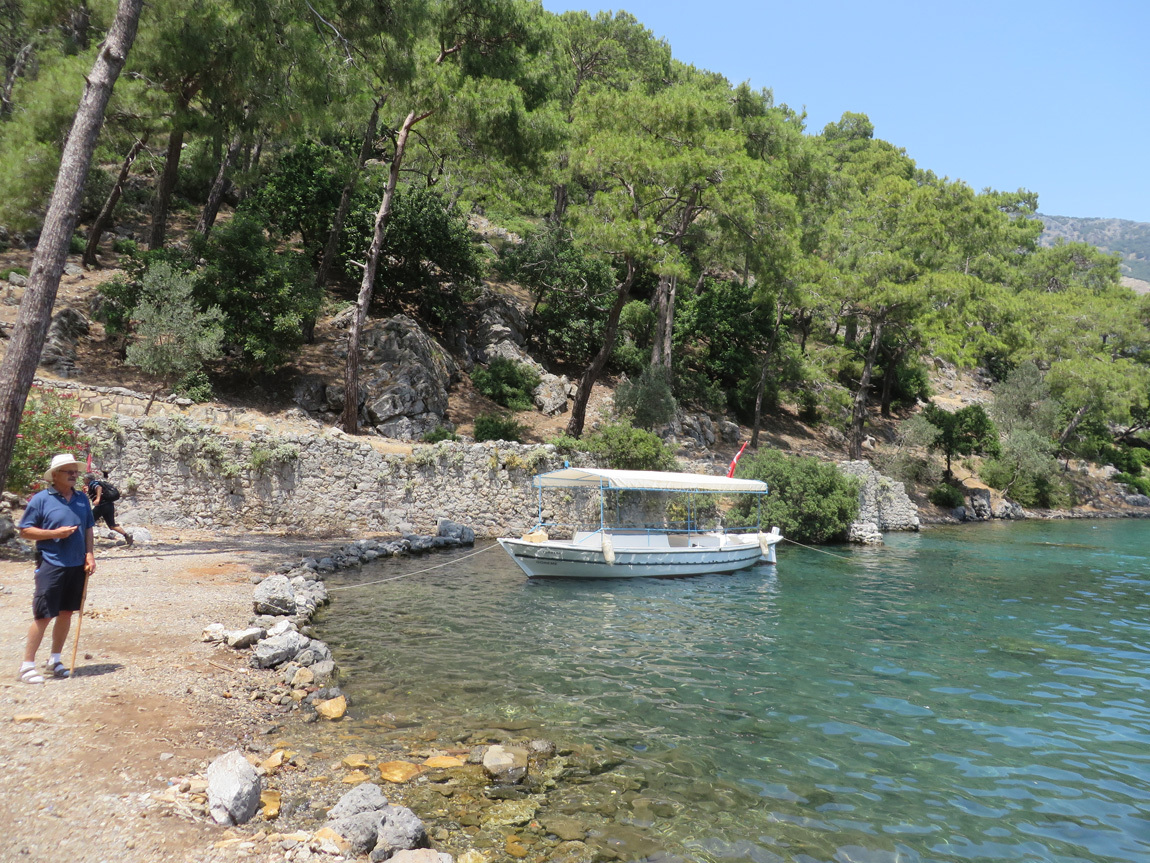
. . . and turquoise:
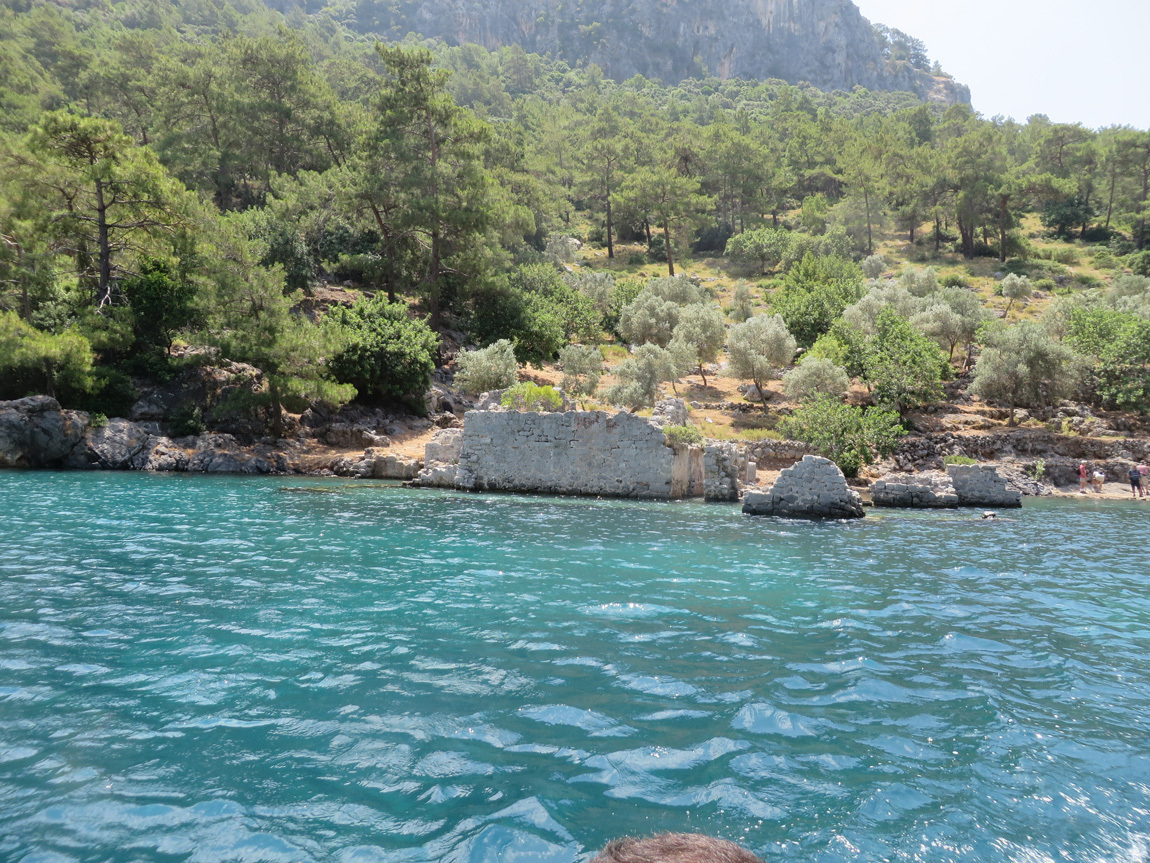
Our motorboat coming to get us:
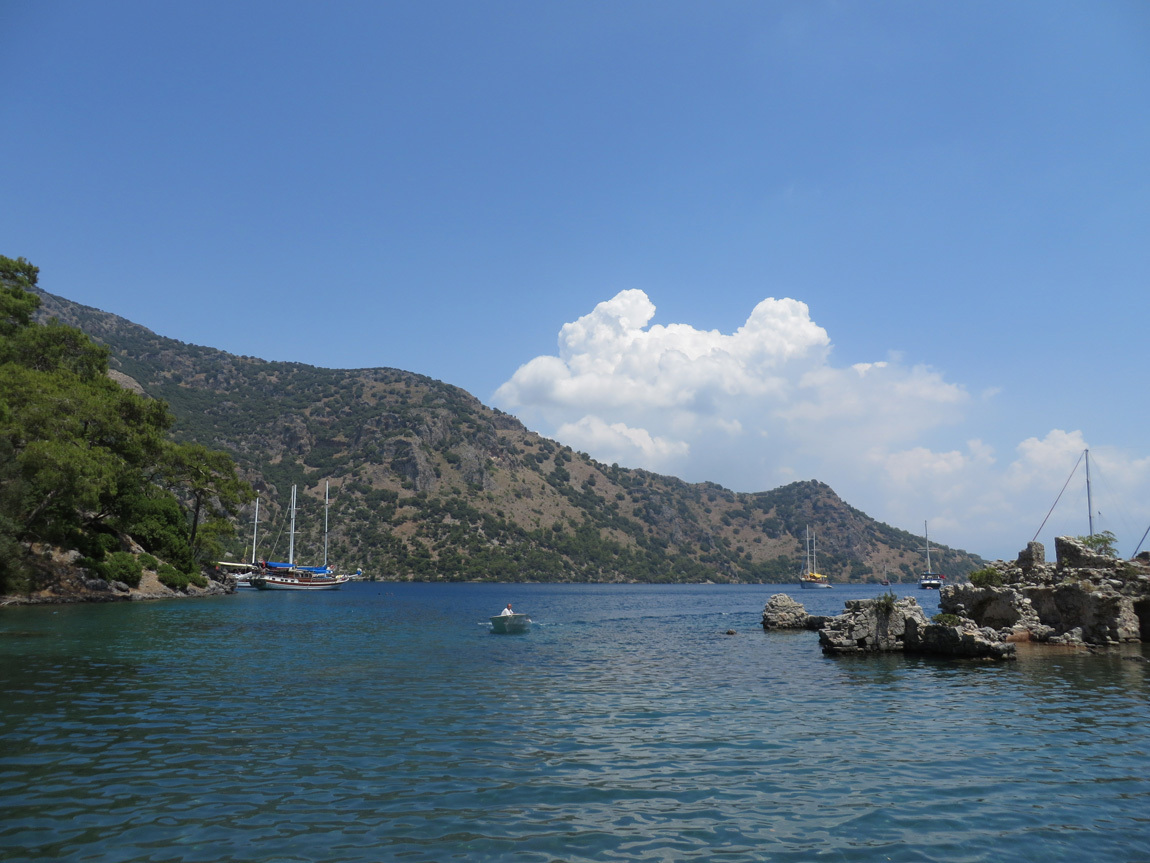
And we are all set for a rest from the hike and an afternoon enjoying the Aegean Sea.
Navigation:
first Turkey post
next Turkey post
We begin our hike in the cove of Aga Limani, across the bay from Gocek. The hike is part of the Lycian Way, a long-distance footpath in Turkey along the coast of ancient Lycia. We hike past Greco-Roman ruins, Lydian ruins, and end at the Lycian era Sunken Baths of Cleopatra. The hike took about 3 hours and was steep and rocky at times. We stop a lot to learn about the different trees and flowers and local history.
(Historical timeline: Kingdom of Lydia from 12-6th century BC, encompassing most of western Turkey; Lycia, around 1-2 BC, along the western coast of modern-day Turkey.)
Each gulet has a small motorboat to transport passengers from the gulet to the shore:

The trails rises quickly and we see our gulets starting off. They will motor along the shore and pick us up at another spot at the end of our hike.

Ruins of a house:

This trail was once paved with large stones.

Different types of trees and plants line the trail. Ali points out pomegranite trees, bay leaf trees, and herbs such as oregano and sage.

This was once a church.

See the tree growing out of the old structure:

Andrea finds a donkey:

A tortoise going into a tunnel in the old church:

Here is where he was going:

Coming up to a cistern:

Inside the cistern:

Ali has arranged for us to visit a family that lives in this rural area. They raise goats and the wife makes necklaces and goat-bells to sell to passers-by. Their daughter is home for the summer, but in the school year she lives with relatives near a city so she can attend a good school.

They offer us refreshments. It is good to sit down out in the shade and enjoy the sage tea.

They sell their crafts under a covered area.

I bought a necklace:

And a spoon made from olive wood:

Our hike continues beneath these tall trees. They are kind of a feathery pine tree.

A donkey peeks out of a goatherder's shed:

The Lycian Way is waymarked with red and yellow stripes of paint.

You can see the Aegean Sea in this photo. We climbed up pretty high. Ali tells us that Antony gave this part of the Lycian Way to Cleopatra as a gift, since the view is so beautiful.

This is a strawberry tree. No, it doesn't produce strawberries, it just has bark that resembles the look of strawberries.

Our group along the path:

A view of the Aegean:

Our gulets await us in a different cove from which we disembarked this morning. The ruins are the Sunken Baths of Cleopatra. We will have lunch on the gulet and then spend the afternoon swimming and snorkeling around these ruins.




The water is crystal clear:

. . . and turquoise:

Our motorboat coming to get us:

And we are all set for a rest from the hike and an afternoon enjoying the Aegean Sea.
Navigation:
first Turkey post
next Turkey post
Comments
No comments yet
Add Comment